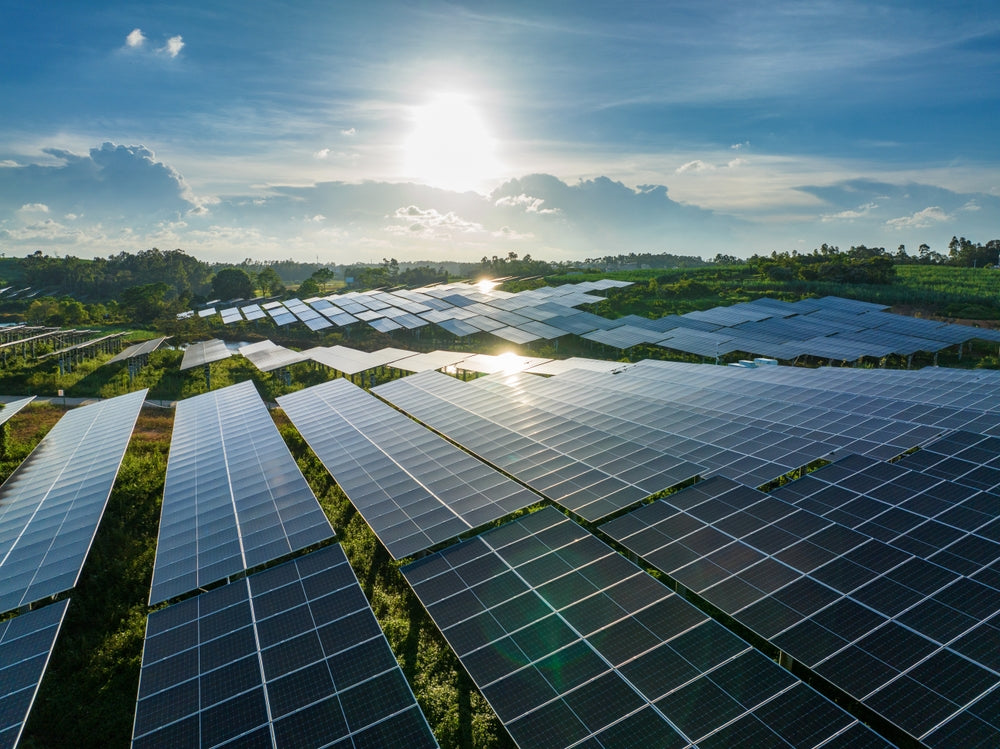
In recent years, solar energy has emerged as a game-changer in numerous industries, and agriculture is no exception. For farmers looking to cut down on operational costs, increase sustainability, and boost productivity, solar energy offers a wealth of advantages.
By harnessing the power of the sun, agricultural operations can enhance their energy efficiency and support environmental goals. In this blog, we will dive into the benefits of solar panels for agriculture, focusing on how this green technology can revolutionize farming practices.
Power House: Leading the Solar Revolution in Pakistan
Before we explore the benefits of solar panels for agriculture, it’s essential to highlight the remarkable strides being made by Power House, a Pakistani solar energy company at the forefront of renewable energy solutions. Power House offers a wide range of solar products tailored to meet the needs of various sectors, including agriculture. With a focus on sustainability, innovation, and cost-effectiveness, Power House has positioned itself as a leader in providing solar solutions that are accessible and beneficial to Pakistani farmers.
Through initiatives like solar-powered irrigation systems, Power House is helping farmers cut energy costs, reduce reliance on non-renewable energy, and improve crop yields. Their commitment to making renewable energy affordable and efficient has made them a key player in the renewable energy sector in Pakistan.
1. Reduced Energy Costs
One of the most significant benefits of solar panels in agriculture is the dramatic reduction in energy costs. Farmers spend a substantial amount of money on electricity or diesel to power irrigation systems, heating, cooling, and other essential farming operations. Solar panels provide a renewable and cost-effective alternative by generating electricity directly from the sun.
Long-term Savings
While the initial investment in solar panels may seem high, the long-term savings far outweigh the upfront costs. Once installed, solar panels require minimal maintenance and produce free electricity for years. Over time, this leads to a significant reduction in the amount of money farmers spend on utility bills, allowing them to reinvest those savings into other aspects of their farming operations. Power House’s solar panel solutions are designed to maximize these savings, making solar energy an economically viable choice for small and large-scale farms alike.
2. Reliable Power Supply
Another key advantage of using solar panels in agriculture is the reliability they offer. Many rural farming areas face inconsistent power supply, which can be detrimental to agricultural productivity. Solar panels provide an uninterrupted source of electricity that is not dependent on external power grids.
Off-grid Solutions for Remote Areas
For farms located in remote areas where access to electricity is limited or non-existent, solar panels can offer a life-changing solution. With off-grid solar energy systems, farmers can power their operations without relying on traditional electricity sources.
This is especially useful for running irrigation pumps, livestock feeders, and even refrigeration units to preserve produce. Power House’s innovative off-grid solar solutions are designed to cater specifically to the needs of rural Pakistani farmers, ensuring that they have access to reliable energy, regardless of location.
3. Environmentally Friendly Farming
Sustainability is at the heart of modern agriculture, and one of the major benefits of solar panels is their positive environmental impact. By reducing the reliance on fossil fuels, solar panels contribute to lowering greenhouse gas emissions and promoting cleaner air.
Reducing Carbon Footprint
Agricultural activities account for a significant portion of global carbon emissions, primarily due to the use of diesel-powered machinery and irrigation systems. Switching to solar-powered systems helps to minimize the carbon footprint of farms. For instance, solar-powered irrigation pumps can replace diesel pumps, which emit harmful pollutants into the environment. The result is more sustainable farming practices that support global efforts to combat climate change.
Preserving Natural Resources
Solar panels also help conserve natural resources like water. Solar-powered irrigation systems allow farmers to better manage water usage by automating and optimizing the watering process. This reduces water waste and ensures that crops receive the necessary amount of water without depleting local water sources.
4. Increased Productivity and Efficiency
One of the lesser-known benefits of solar panels in agriculture is their ability to increase productivity. Solar energy can be used to automate and optimize various farming processes, leading to more efficient operations.
Solar-powered Irrigation Systems
Irrigation is one of the most energy-intensive processes in agriculture, but it’s also essential for healthy crop growth. Solar-powered irrigation systems use energy from the sun to pump water to fields, ensuring that crops receive the necessary moisture. These systems can be programmed to operate automatically, which saves time and reduces labor costs. Power House offers solar-powered irrigation systems that are specifically designed for Pakistani farms, allowing farmers to increase their yields while reducing energy consumption.
Automation and Smart Farming
In addition to irrigation, solar panels can be used to power smart farming technologies. These include automated feeding systems for livestock, climate-controlled greenhouses, and monitoring systems that track soil moisture levels, temperature, and humidity. By integrating solar power with modern technology, farmers can optimize their operations and increase overall productivity.
5. Enhancing Farm Resilience
Farming is inherently vulnerable to the unpredictability of weather and market fluctuations. Solar panels provide a level of energy security that can help farms become more resilient to these challenges.
Energy Independence
One of the primary benefits of solar panels is the energy independence they provide. Farmers who rely on diesel or electricity from the grid are at the mercy of fluctuating fuel prices and power outages. Solar panels, on the other hand, provide a consistent and renewable energy source. This independence ensures that farms can continue operating smoothly even in the face of external disruptions.
Protection from Rising Energy Costs
Energy costs are subject to change, often increasing over time. By investing in solar panels, farmers can protect themselves from the volatility of energy prices. This financial stability allows them to focus on improving crop quality, expanding operations, or investing in new technologies.
6. Government Incentives and Support
Governments worldwide, including Pakistan, are increasingly offering incentives to encourage the adoption of renewable energy sources like solar panels. These incentives make it even more attractive for farmers to switch to solar energy.
Subsidies and Tax Breaks
Many countries provide subsidies, grants, or tax breaks to offset the initial cost of installing solar panels. In Pakistan, the government has introduced various programs aimed at promoting solar energy use in agriculture. Farmers who take advantage of these incentives can reduce their installation costs and start enjoying the benefits of solar panels sooner.
Increased Access to Solar Financing
In addition to government support, many financial institutions offer solar-specific loans and financing options to make solar panel installation more affordable. Power House has partnered with local financial institutions to offer farmers flexible payment plans, ensuring that even small-scale farms can benefit from solar energy.
7. Promoting Sustainable Rural Development
Solar energy doesn’t just benefit individual farms; it has the potential to transform entire rural communities by promoting sustainable development.
Job Creation and Economic Growth
The installation and maintenance of solar panels create job opportunities in rural areas. From solar panel installers to technicians and maintenance personnel, the growth of solar energy creates new industries and contributes to the local economy.
Reducing Rural Poverty
By lowering energy costs and increasing farm productivity, solar panels can help reduce rural poverty. Farmers who save on energy expenses can invest more in their operations, potentially increasing their income and improving their quality of life.
8. Durability and Low Maintenance
Solar panels are known for their durability and longevity. Most solar panels come with warranties that last up to 25 years, ensuring that they will continue to generate electricity for decades. Additionally, solar panels require very little maintenance, making them a hassle-free solution for farmers.
Minimal Maintenance Requirements
Once installed, solar panels require only occasional cleaning and inspections to ensure they are functioning optimally. This is especially beneficial for farmers, who may not have the time or resources to regularly maintain their energy systems. The low-maintenance nature of solar panels makes them an ideal choice for busy farming operations.
Conclusion
The benefits of solar panels in agriculture are vast and transformative. From reducing energy costs to promoting sustainability, increasing productivity, and enhancing farm resilience, solar energy offers a wealth of advantages for modern farming.
Companies like Power House are making it easier than ever for farmers to harness the power of the sun and enjoy these benefits. As more farmers adopt solar energy, the future of agriculture looks brighter, greener, and more efficient.
If you're considering integrating solar energy into your farm operations, now is the time to make the switch. With the continued advancements in solar technology and increasing support from both the government and solar companies like Power House, the transition to solar energy has never been more accessible or beneficial. Solar energy is not just a smart financial decision; it’s an investment in a sustainable, productive future for your farm and the planet.








